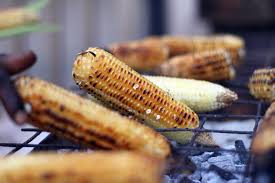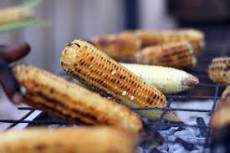- When the weekend arrives, the call of the streets is impossible to ignore-it's our 911.its not about a formal restaurant or a fancy dinner, but the inviting scent, the aroma of spices swirling in the breeze, vendors shouting orders, oil crackling, laughter echoing—it’s a street-side symphony.
When the weekend arrives, the call of the streets is impossible to ignore. It's not about a formal restaurant or a fancy dinner, but the inviting scent, the aroma of spices swirling in the breeze, vendors shouting orders, oil crackling, laughter echoing—it’s a street-side symphony.
Street food is not about a quick bite, its celebration of local culture, creativity, and community. Found in bustling markets, by the roadside, hidden paths and hawking, they sell delicious, affordable, and makes us enjoy the deep social experience that unites us all.
In a country where every tribe brings its unique flavors to the table, our streets have become a canvas for culinary creativity.
This is an unofficial guide to the flavors and stories that make our street food scene so special.
Every Kenyan has a favorite street food, a go-to for a quick snack or a full-on meal. These classics are more than just food; they are a part of our daily rhythm.
Smokies/eggs
A smokie, sausage or a boiled egg, slit open and generously filled with kachumbari (mix of onions, tomatoes).
They are the perfect snack for an evening stroll, late night hangouts, a post-football match treat, or a mid-commute lifesaver.
Mutura
On any chilly evening, the sight of mutura (African blood sausage) fresh off the grill, ready to be devoured mutura is a heartwarming bite of culture.
This Kenyan delicacy, often served with a side of peppery kachumbari, keeps the tradition alive. It’s a dish that transcends social class, bringing together everyone from suited professionals to late-night revelers for a shared moment of simple, local pleasure.
Viazi Karai/Bajia and Mahamri
Even far from the coast, the influence of Swahili cuisine is strong.
Viazi karai (fried potato in a turmeric batter) and mahamri (soft, fried Swahili doughnuts) can be found in many urban centers. These dishes give the essence of Coastal spice-rich culture and offer a mini-vacation with every bite.
The true magic of Kenya's street food isn't just in the taste, but in the human stories. Behind every stall is a hardworking entrepreneur. A mother supporting her family, a student paying for tuition, or an artist funding their passion. These vendors are the backbone of our communities.
When you buy a roasted corn (mahindi choma), by the roadside, you're not just getting a snack; you're getting the best, roasted with care.
When you stop for a cup of uji power (a nutrient-rich porridge) from a vendor, you're getting more than just a drink; you're getting a warm, energizing start to your day from someone who values your business.
This weekend, instead of going for the common fast-food, consider going on a culinary adventure right outside your door. Find a street food vendor












